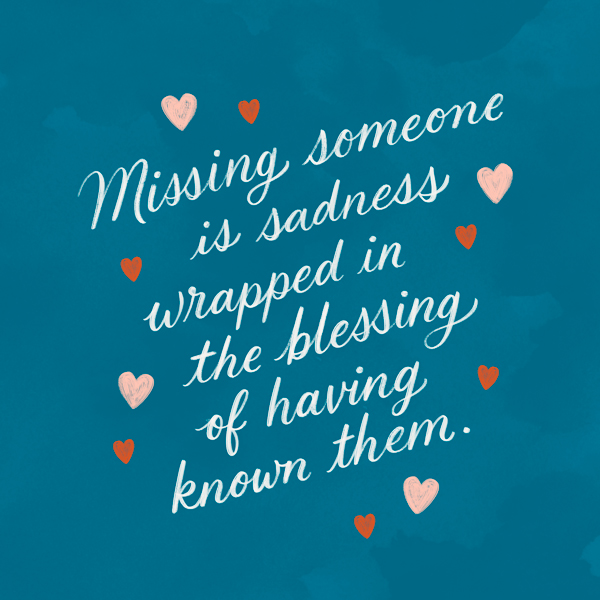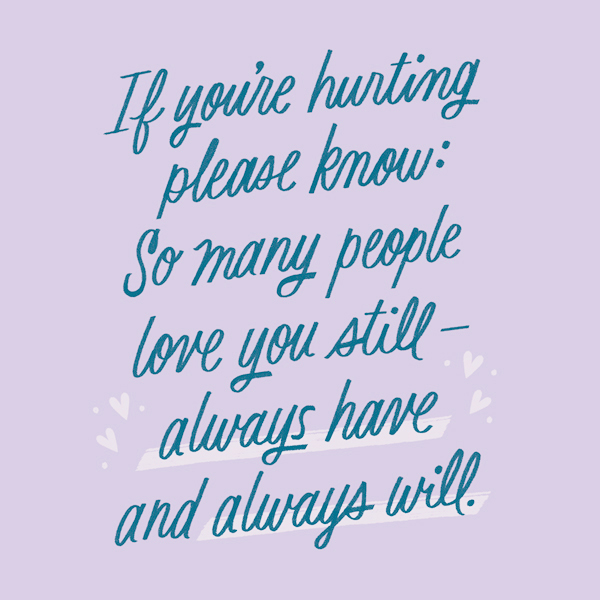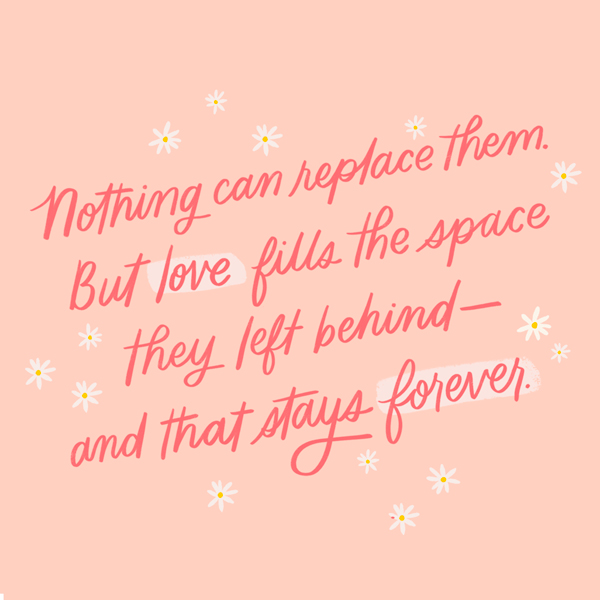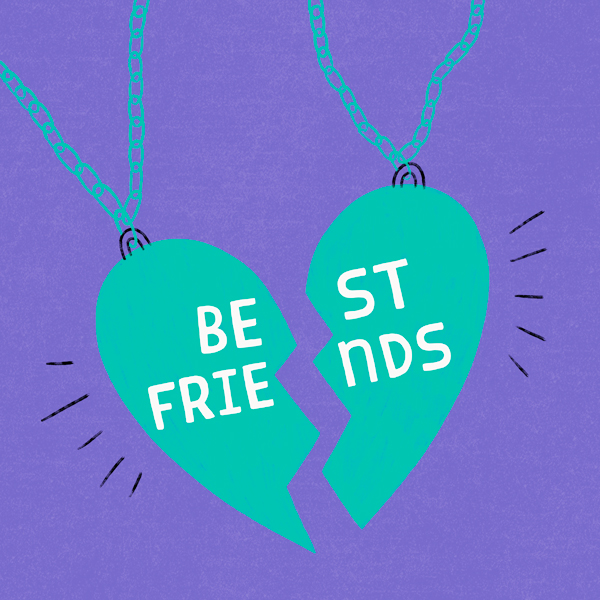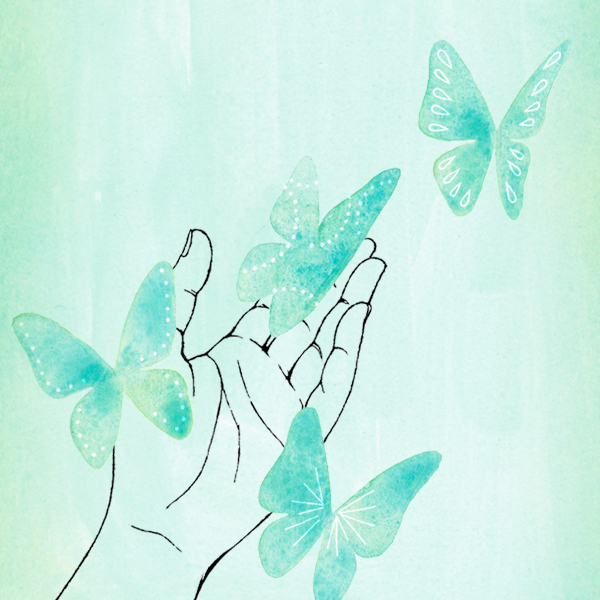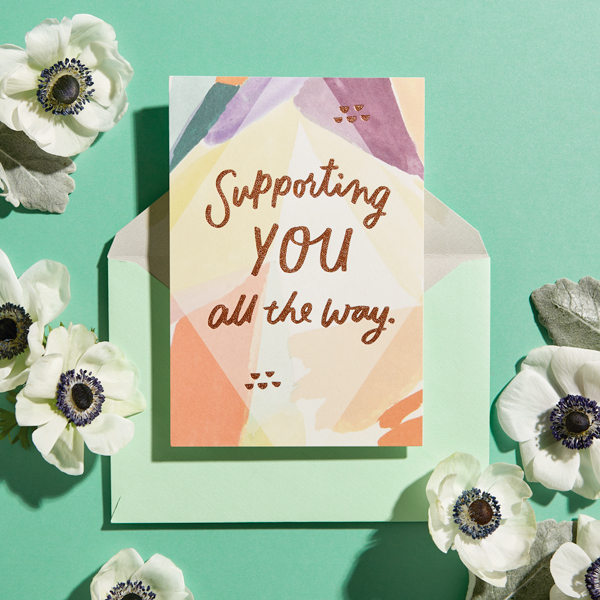Ways to find comfort and hope when you’re grieving on Valentine’s Day (or support someone who is)

Grief is always hard, but especially on Valentine’s Day. From social media to stores to kids’ classrooms, it can feel like everywhere you look, there are boxes of chocolate, diamond rings and red hearts symbolizing love and romance. And it can make you feel sad on Valentine’s Day.
Because a day focused on love and “forevers” can make your sense of loss feel all the starker, triggering a range of big feelings—isolation, disgust, unfairness and even cruelty—to those of us living with grief and loneliness.
So, we want to help you get through a day that’s all about love when you’ve lost someone—including a someone who might have been the love of your life.
Inspired? Create and share by tagging @HallmarkStores.
We want to start by acknowledging that everyone’s grief is unique. We’ve written these tips with empathetic hearts, with sensitivity and in the spirit of Valentine’s Day, with love. We hope they can bring you some comfort.
If grieving the death of your partner
Before we share any thoughts on healing during this holiday, we want you to know that we see you and we’re sorry for your loss. We know the passing of someone very close to your heart is devastating in ways no one else can fully understand. We also humbly recognize why you’re here looking for comfort, and we do not take that responsibility lightly. We honor you and your grief on Valentine’s Day.
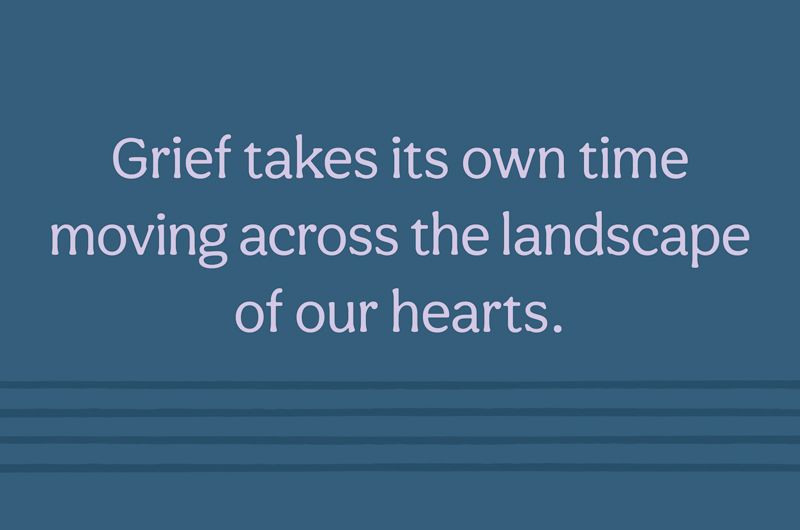
Here are some suggestions to help you with Valentine’s Day grief:
Turn it into a day for self-love and self-care.
- Treat yourself with extra compassion. There are absolutely no “shoulds” around how you feel, act or deal with the day. Go with what your heart needs.
- Set boundaries about Valentine’s activities. Participate however you want to. Or don’t.
- Give your body and spirit some love with exercise that makes you feel stronger, meditation that makes you feel grounded or extra prayer that makes you feel lighter and connected to the universe and/or more embraced by God.
- Write yourself affirmations and mantras about loving the person you are and the love that you still have to give.
- Pull your inner circle closer to support you; lean into their love.
Celebrate your love story in memory of the person you love.
- Buy yourself the flowers your partner loved to send to you.
- Eat one of your favorite meals you shared. (Pro tip: Skip the loud restaurants and get it delivered to your door!)
- Write your spouse a love letter. List what you loved—and always will love—about them, or document one of your best memories together.
- Talk to other people who loved them, too. This can be as simple as a text to acknowledge your shared loss. Or it can be a little dinner party where memories, stories and laughter are shared.
- If it’s not too painful, visit a place you loved to go to as a couple. Does this mean a local haunt like your tried-and-true coffee spot? Yes. Does this mean a trip to the beach where you fell in love? Also, yes.
- Remember the person you love with intention in a way that brings you comfort and tends to your grief.

Let yourself feel ALL the emotions.
- Feel your feelings. It’s OK to feel sad—to recognize that the day may trigger powerful memories. What memories bring the most comfort to your heart, though?
- Reclaim the day to reflect what made your love real and special. Write about your emotions and your memories. It can be a letter to your lost love, a journal entry or social media post or a poem. Write what’s in your heart: the sad, the good, the angry, the light, the yearning and any healing.
- Think of all the ways that love works in your life (not just romantic) and focus on those. For example, the love of the inner circle of people who’ve been helping you through.
- Find comfort in community. Join a support group that focuses on loss of a significant other. Or find a friend who has also experienced loss. There’s solace in knowing someone gets you.
- Listen to a podcast with people who can relate to your loss or have a story that you find uplifting.
- Play all the songs that honor the journey you took together.
- Binge-watch a TV series you both loved or watch those romantic movies that remind you of your relationship.
- Name something in their honor. Maybe it’s a tree or a plant you’ve grown. Maybe it’s a cute animal at the shelter you’ve made a donation to. Maybe it’s a stretch of highway or a field. Maybe it’s a star you pick out from the night sky.
Create a keepsakeable collection.
- Gather meaningful items—things you can touch, see and smell—and place them in a pretty box. Things like a fave photo, a well-loved guitar pick, their go-to T-shirt, a piece of jewelry, a seashell you found on your last trip together, the book they’ve read three times, etc.
- Make a playlist of the songs they loved.
- Write down the memories you want to reflect on for years to come.
- Make a small memory book of pictures with notes that you can keep near you to help bring good memories throughout the day.
- Make a collage of pictures and videos of the two of you from your phone.

If they are grieving the death of their partner
It’s always hard knowing what to say when someone you love loses someone who was their whole world. It can be tricky finding the right words to give comfort and help ease the pain of loss. But it’s important to try. And no matter what, your being there is the most loving thing you can do.
Remember that words matter.
One of the most important ways to support someone who’s grieving a partner is to let them know that they matter and the person they lost still matters—to let the person in grief know that you care. Sentiments like these can go a long way:
- “She was so much love in your life. I’m so sorry that you are hurting.”
- “I can’t imagine how you’re feeling. But I know that you loved him beyond words.”
- “Nobody can replace them, but I’m here to sit with you through this.”
Keeping it sensitive, empathetic and honest is key.
There’s also nothing like letting somebody know that you are grateful for them—even now, when they’re going through it. It keeps the grieving person from feeling like a burden and allows you to express how important they are to you. You could say something like, “You’ve always been there for everyone around you. I’m grateful that I can be here for you now, during such a sad time.”
Whatever words you use, you want to convey “I’m here. And I care.” You can do this in conversation, by text or email or with a note or card.
Be there for them.
Aside from simply missing their person, loneliness is often the hardest part of losing a partner. Even if your loved one knows tons of people care for them, it can be easy to forget when they’re awash in a sea of overwhelming feelings. Here are some ways to show up for them and meet them where they are.
- Offer to spend time with your family member or friend in a way that feels appropriate and comfortable for where they may find themselves emotionally. This can mean finding meaningful time to be together or as casual as a FaceTime call. Tell them you will be there when they need someone to talk to. And mean it. Be prepared to be their emotional support human for a while.
- Try to hear and really listen, paying attention and building empathy for where they are. Remember that they are not asking you for any unsolicited advice. Their grief is unique to them, so they’ll need to find their own personal path to healing.
- Check on them out of the blue. Say something like, “I was just thinking about you and wanted you to know that.” Or “I just thought I’d send a quick note to let you know I love you.”
- Give them space if they ask for it or show signs of needing it. This doesn’t mean you should just disappear; it’s just allowing some time to let them process feelings on their own. Follow their lead on how much alone time and together time they need.
Give them a meaningful gift.
Your time is the most meaningful one. But here are some other ideas that can mean so much, too:
- You know those 12,000 photos on your phone? Put them to good use by creating a memory album for your friend. Or find that one great pic that would look lovely on display and put it in a frame, or put a picture on a personalized blanket or ornament.
- Write a note and share a memory you treasured with the person who died or with the two of them.
- If your friend wants to continue visiting a special restaurant they enjoyed with their partner, invite them and take them.
- If you own something from the person who passed away—and you can bear to part with it—consider giving it to or sharing it with the grieving person. Maybe it’s something they made by hand, some little trinket they bought or some advice or wisdom that you can write down and share or have printed and framed.
Even when it’s beautiful, love can bring up grief on Valentine’s Day and other significant occasions. There are so many complex feelings, but if we’re gentle with ourselves and those we care about, the best parts of love win…and our hearts can heal with every little kindness that comes our way.
Looking for more ideas for celebrating lost loved ones, or supporting the ones you love in their grief? You can find more here:
- Comforting grief quotes
- A Christmas tribute: meaningful ways to weave memories of lost loved ones into new holiday traditions
- Grief support on anniversaries, birthdays and special occasions
- What to write in a sympathy card
- Real Stories: Supporting friends through grief
- Sympathy gift ideas for offering your condolences and support
Shop Valentine's Day
See allYou may also like
See more-
Sympathy How to support a grieving friend
Advice on how to support a grieving friend, directly from people who went through it. Get ideas to show you care here.
-
Sympathy Sympathy gift ideas for offering your condolences and support
Many times, we don’t know what to say after a loss. It can be difficult to determine what will comfort a hurting frie...
-
Sympathy 75+ grief quotes to give you comfort and help you heal
Grieving the loss of a loved one feels different for everyone, and there’s no telling what will bring comfort on a ha...
-
Valentine's Day How to survive Valentine’s Day after a divorce or breakup
We know that ending a relationship can be extremely heartbreaking. It’s a very significant loss, and when Valentine’s...
-
Mother's Day Mother's Day without Mom: Remembering lost loved ones with new traditions
This Mother’s Day will be my third without my mom. She died just before Thanksgiving and Christmas in 2020, which mad...
-
Lifestyle How to Write an Obituary: What to Say About the Life of a Loved One
Summarizing a loved one’s life can feel like an impossible task, especially when you’re grieving. It’s even more chal...
-
Card Ideas What to Say When Someone Loses a Pet
My first cat died when I was 8 years old. His name was Barnabus—after the soap opera vampire—and he was a handsome bl...
-
Friends How to survive a friendship breakup
There are a few things that I dreamed of having more than anything as a kid—like a golden retriever, my own room, mer...
-
Christmas A Christmas tribute: meaningful ways to weave memories of lost loved ones into new holiday traditions
For many of us, Christmas is the time of year when we miss our lost loved ones the most. Finding ways to memoriali...
-
Sympathy Sympathy messages: What to write in a sympathy card
Signing a sympathy card isn’t easy. We search for words. We wonder what would be comforting to hear. We worry about s...
-
Sympathy Grief and the holidays: Supporting friends through difficult days
Many of our favorite holiday memories include family members and our closest friends. So it’s no surprise that people...
-
Baby What to Say When a Friend Loses a Baby: Messages of Love and Support
Losing a baby, no matter how it happens—or how early in the pregnancy—is devastating. It’s a time of sadness when ...
-
Sympathy How to Grieve Together When You Can’t Be Together
When someone has died, our first instinct is to rally around the family and friends closest to the deceased, offer...
-
Sympathy Grief support: How to help someone who is grieving immediately after a loss
When a friend suffers the loss of a loved one, their whole life changes. And we wonder: What can we do to help som...
-
Sympathy Continuing Grief Support: How to Help Someone Who is Grieving over Time
Grief doesn’t follow a schedule. There’s no deadline for the feelings of sadness, anger and loneliness to subside ...
-
Sympathy Grief support on anniversaries, birthdays and special occasions
When you’re supporting a friend through their grief, look to the calendar for cues about when they might need extr...
-
Sympathy Hospice Messages: What to Write to Someone Who is Dying
The end of a person’s life is an important time for friends and family members to reach out with words of caring, ...
-
Mother's Day When Mother’s Day Is Hard: Giving Support to Those Who Are Hurting
Mother’s Day can be hard for many people, from mothers who’ve lost children and children who’ve lost mothers to th...
-
Sympathy Grief and loss: how to comfort the grieving
The sympathy cards have been safely tucked away. The flowers have been careful...



